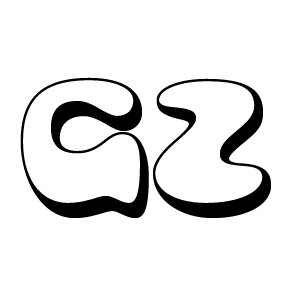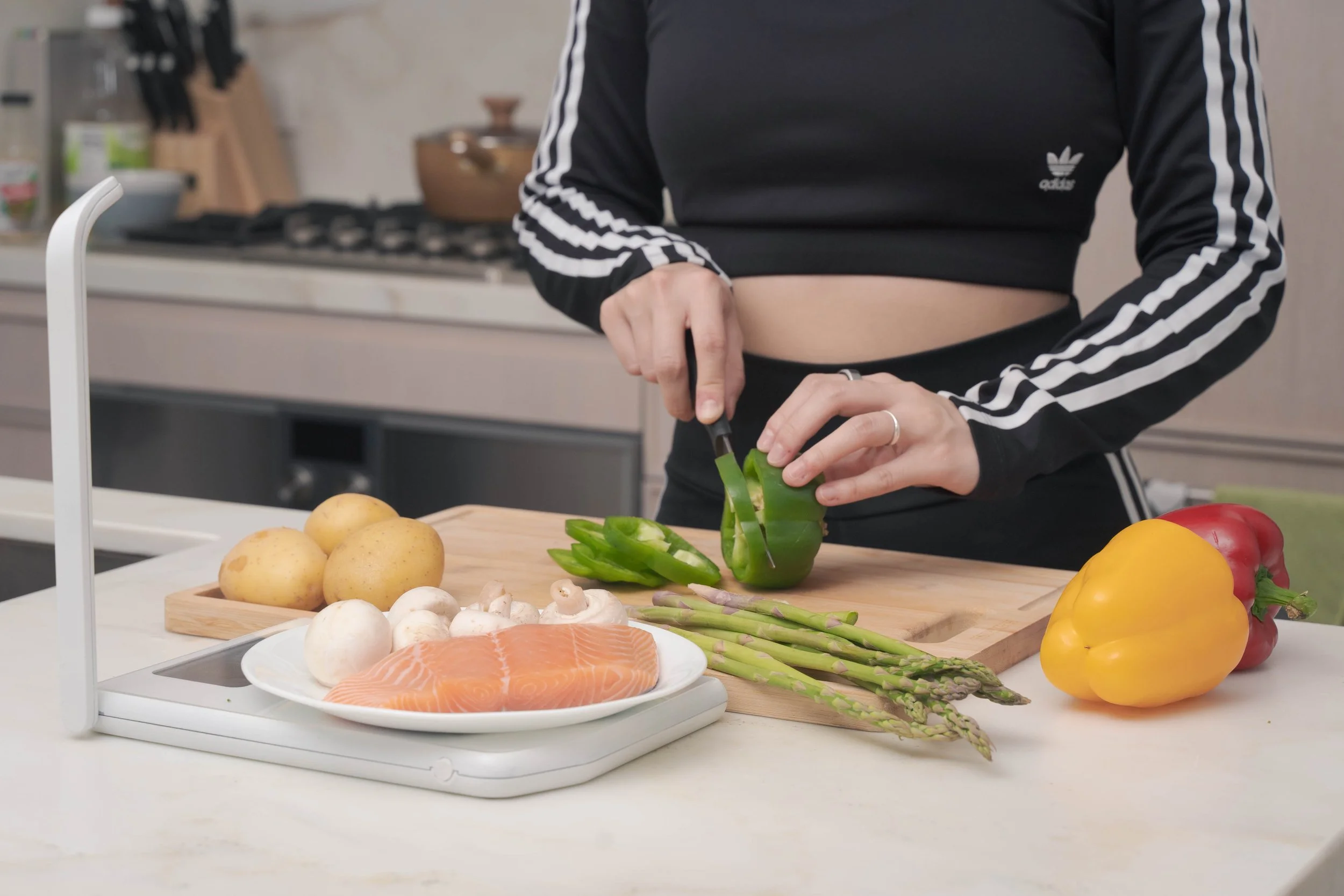

Nutri AI Kitchen Scale App
Role
Sole UIUX Designer, Industrial Design Lead
Awards
New York Product Design Awards 2022
The Nutri AI Kitchen Scale is an innovative smart nutrition tracking solution for individuals who require detailed records of their daily food intake. It simplifies the nutrition tracking process by automating the laborious task of locating, deciphering, and recording the nutrition facts of various foods. With Nutri, people can spend less time tracking their diets, and more time enjoying their food.
This solution leverages the advantages of MIT HanLab’s machine learning breakthroughs to implement a neural network into a smaller, cheaper, and simpler hardware platform ideal for object detection and recognition.
This product concept was the recipient of the 2022 Red Dot Design Award, and the 2022 New York Product Design Award.
Background
Personas
When it comes to new product experiences, it is often easier to get people to use a new product if it improves on an inefficient process of an activity they are regularly engaged in. This is why the personas of John, and gym fanatic, and Sarah, a Type 1 diabetic were chosen. Both individuals are accustomed to closely monitoring their nutrition and frequently utilize food scales and nutrition apps to support their routines.
User Journey and Pain Point Mapping
To comprehend the user journey and identify pain points of the selected personas, interviews were conducted with four primary sources, supplemented by numerous secondary sources to gain a comprehensive understanding of their experiences. Many very similar pain points were identified for the experiences of these significantly different personas. Some of these major pain points included:
Nutritional Balance vs. Enjoyment of Food
Budget Constraints
Portion Control
Meal Prep Time Constraints
Unpredictable Schedules
Monitoring Fatigue
Market
Though there are already industrial applications for identifying food, there are no efficient consumer solutions for truly smart AI enabled nutrition tracking.
Insights
Six major insights were gained after gathering information about the current user experience of nutrition tracking from our target users, and researching the current market of existing products.
Current to Ideal User Journey
These insights were then used to develop an ideal user journey scenario.
Scenario Mapping
In order to make sure all the major food prepping experiences were covered, I mapped out as many possible cooking scenarios that a person might use a food scale for. Some scenarios included: food made from scratch (cake), food made from half scratch (pasta), store bought food, meal prepping, etc.
System Architecture
To create the most concise, yet comprehensive nutrition tracking tool, the whole app experience is broken down into 7 major segments which consist of: Profile, Food Logging, Nutritional Analysis, Dashboard, Live Scale, Add Meal, and Additional Resources.
Sketch Examples
A collection of wireframe sketches created during the brainstorming process.
Mid Fidelity Prototype - App
A mid fidelity prototype of the app was then created to assess overall user experience, and hierarchy of content being displayed and interacted with.
Mid Fidelity Prototype - Scale
A mid fidelity prototype of the scale screen was also created to assess the user flow of all the various kinds of scenarios (created in the scenario mapping phase) that the user might encounter while using the scale.
Style Guide
After creating the mid level fidelity prototype, a style guide was then created for the UI of the app. The main color green was chosen as it is often associated with nutrition and health, and purple, yellow, and red were chosen to be specific indicators for the major macronutrients: fat, carbs, and protein.

High Fidelity Prototype
Personalize Profile
Users unlock a personalized nutrition experience by personalizing their profiles with details such as age, weight, activity level, dietary preferences, and medical conditions, ensuring that their journey to better health is uniquely crafted to fit their needs and goals.

Daily Dashboard
The daily dashboard offered by the app provides users with a snapshot of their nutritional progress, presenting essential details like total calorie intake, macronutrient distribution, and a summary of major meals consumed throughout the day. Users can stay informed and empowered as they effortlessly monitor their journey toward improved health, all with just a glance at their dashboard.

Meal Calendar
Users can effortlessly explore their meal history and plan ahead using the meal calendar feature, which provides a comprehensive view of not only today's meals but also their entire eating history. This empowers users to make informed choices and maintain consistency in their nutrition journey, ensuring long-term success.

Live Scale
Users can experience unprecedented kitchen convenience with the app's live scale view, providing real-time control directly from their phones. Whether users are multitasking or using large containers, they can effortlessly stay in command of their measurements, ensuring precision and ease in their cooking routine.

Logging Meals Without the Scale
The "Add a Meal" button provides users with the flexibility to log their meals within the app, even without relying on the Nutri smart scale. Whether users are on the go or prefer manual input, this feature enables seamless tracking, ensuring their nutrition journey remains effortless and adaptable to their needs.

Additional Resources Tailored to You
Users can explore curated resources tailored to their unique nutritional needs and health objectives, derived from the information they provided in the personalized quiz. Additionally, they can receive instant support and guidance from the app's AI assistant for any questions or inquiries about the app and its features.
User Feedback
The high level fidelity prototype was then used to conduct user tests to get feedback on the design.
Next Steps
The feedback from the users largely fell into three different categories: Data Visualization, Content Hierarchy, and Personalized Experience. The next steps for this projects is to continue to iterate and test on the problems the user testers identified.

Main Takeaways
AI ethics
While AI offers many benefits and simplifies tedious tasks, thorough testing before product release is crucial. In health and wellness, ensuring AI recommendations avoid promoting unhealthy behaviors is vital for user safety. This project for me personally has shed light on how it is important to still be able to maintain independent thought alongside AI suggestions, akin to being able to drive even if you have an autonomous vehicle.
Data Translation and Visualization
The journey of identifying essential data points that were important to the user, and iterating on the display of large amounts of complex data in a user-friendly manner made me realize the critical importance of data visualization in product design. Information hierarchy and visual hierarchy significantly influence user interpretation and understanding of data.
User Test Early and Frequently
Through this project, I've come to appreciate the value of creating low to mid-fidelity digital prototypes early on in the design process for user testing. Leveraging the speediness of prototyping digital experiences has revealed how lower fidelity prototypes streamlines the development of a cohesive product experience, particularly in bridging the gap between hardware and software interactions.





























